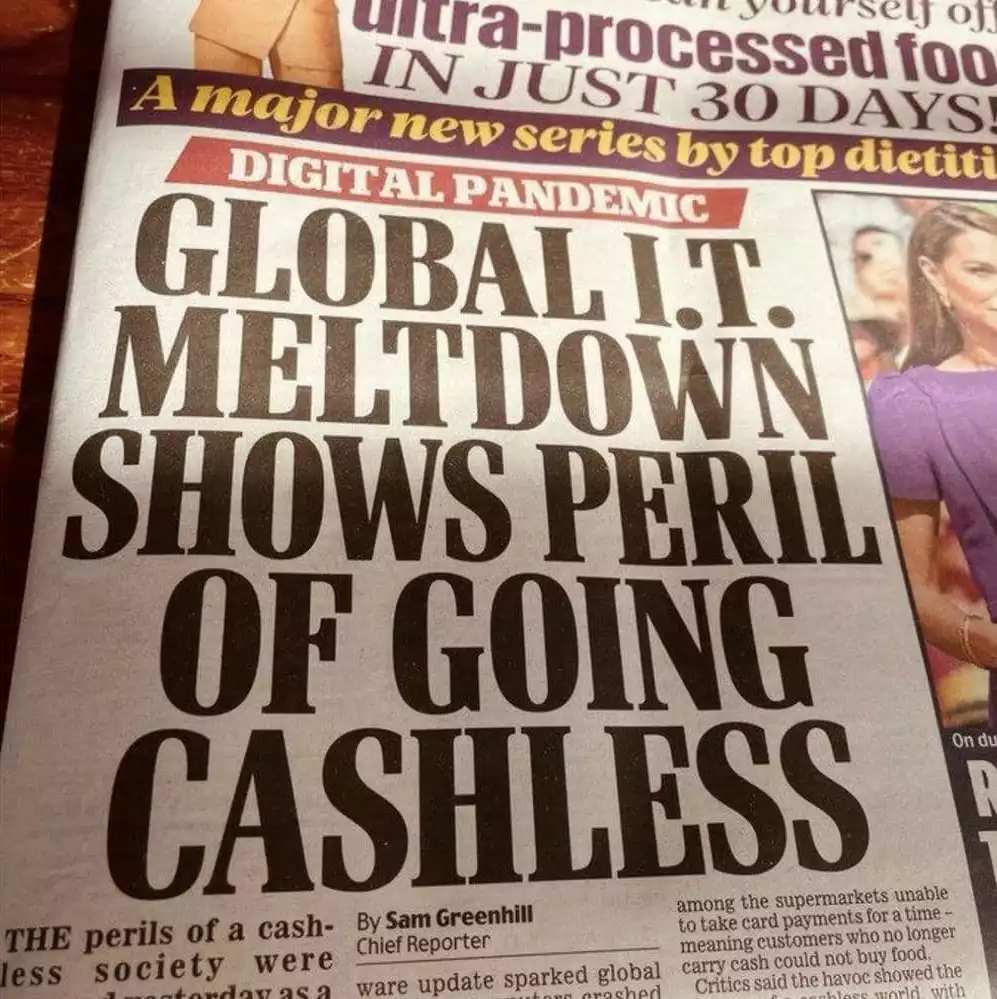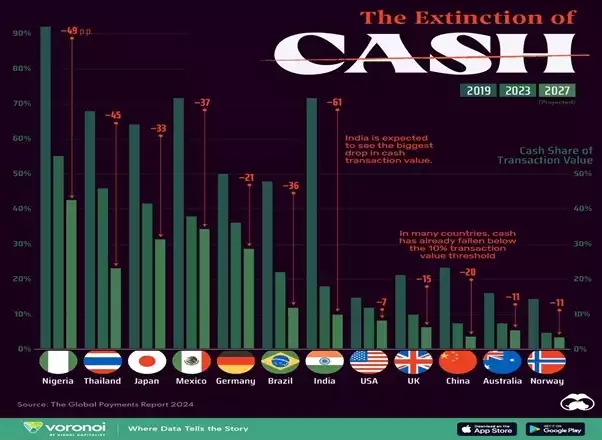Mainstream Media Finally Starting to Turn Against the Idea of a Cashless Society
Insights
|
Posted 25/07/2024
|
2761
The media has been pivotal in pushing the Global War on Cash, but the global IT outage we saw last week has surprisingly led many to rethink their original stance.
Last week, the confidence of some British media in a completely cashless society was tested by a worldwide IT outage. As I am sure we are all aware, a software update from cybersecurity firm CrowdStrike caused millions of Microsoft systems to crash globally. This outage affected banks, payment firms, airlines, hospitals, NHS clinics, retailers, and hospitality businesses. These businesses had to either operate with cash only or close until the systems were restored.
We saw complete chaos back home in Australia too. Social media images showed card-only self-checkout registers at Coles grocery stores displaying Blue Screens of Death (BSODs). Lines at human-operated registers stretched to the back of stores. Some stores simply closed their doors.
As a consequence, in the UK, four major newspapers — The Guardian, The Daily Telegraph, The Times, and The Daily Mail — have published articles highlighting the fragility of a cashless society in light of the global IT outage. The Daily Mail featured this issue prominently on its front page.

Critics have highlighted the dangers of a cashless world, noting that nearly half of Britons now leave home with only their phones for payment. Dennis Reed, director of the Silver Voices campaign group, expressed concern, saying the outage should serve as a warning to the government.
‘If people can’t pay because they can’t use their phone then when systems go down – and they always will – people won’t be able to access vital services, food, and the essentials of life.
‘With this ever-more digital society, we are reliant on it all working. But we have no control over it. We are putting all our eggs in one basket. The future security of the nation is in danger.’
Additionally, Richard Forno, a cybersecurity lecturer at the University of Maryland, told WIRED in an interview that the outage revealed the fragility of our cloud and internet infrastructure.
"Software supply chains have long been a serious cybersecurity concern and potential single point of failure," Forno said. "Today's events might make the world realise that our modern, often cloud-based society is built on a fragile foundation not designed for security or resilience."
The mainstream media headlines and stories are now in stark contrast to the rhetoric we saw during the global pandemic, which fast-tracked the move to a cashless society.

But even pre-pandemic, the attack on cash was evident. For decades, the mainstream media has played a significant role in advancing the Global War on Cash, promoting the idea of cashless societies. In 2007, Spanish economist Guillermo de la Dehesa argued that a cashless world would be safer and less violent, as it would eliminate the major incentive for illegal activities.
“Without cash, we would live in a much safer, less violent world with enhanced social cohesion, since the major incentive fuelling all illegal activity [i.e. cash]… would disappear.”
In 2013, Mastercard sponsored a study at Oxford University to investigate the germ loads on banknotes. The results were presented in a way that emphasised the health risks of cash.
One of the strongest arguments for cash is its reliability in a country's payment system. Cash does not crash, fail in a power cut, or freeze during a cyberattack or software outage (though ATMs might). In contrast, digital payment systems require a stable and continuous internet connection and power supply to process transactions.
And in the incredibly turbulent world we live in today, it is clearly preferable to rely on the stability of cash as opposed to an online system with a single point of failure.